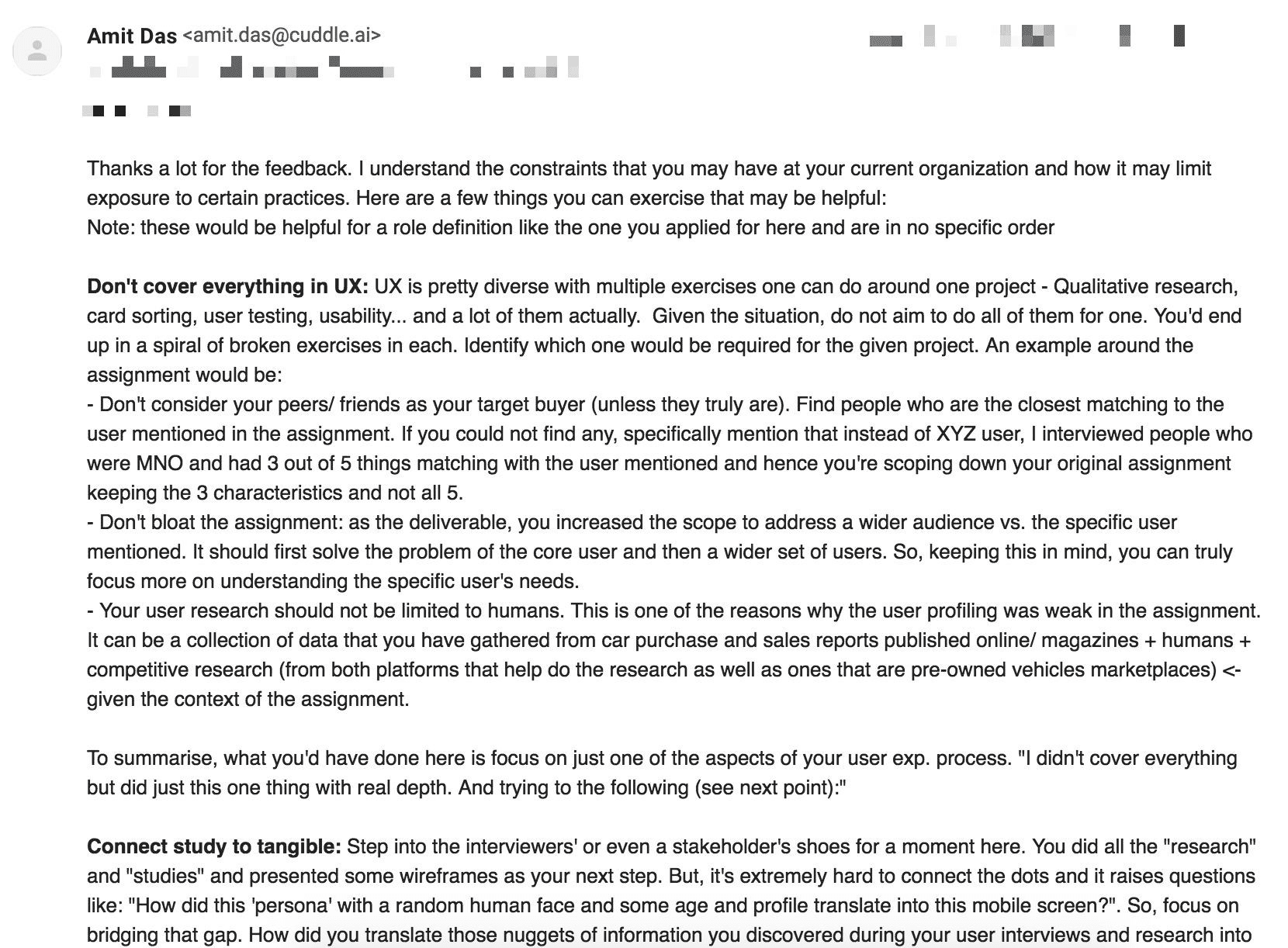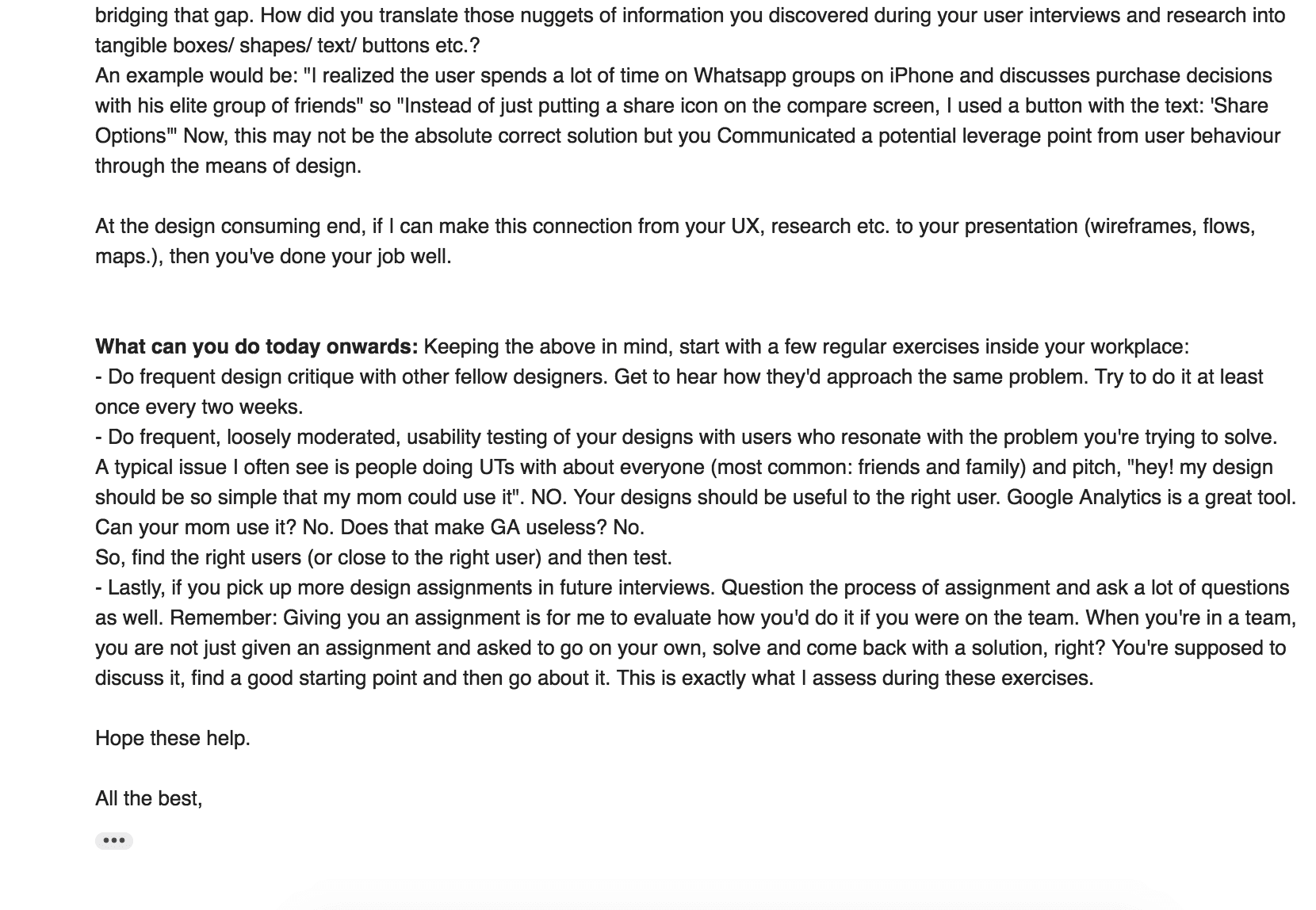17/10/20
While hiring, we spend a lot of time writing detailed job descriptions. Even giving a shout on social media broadcasting our fantastic company, dream-come-true culture, and the best of the work a company can provide you. We want folks to apply—a lot of them.
However, as we start getting applications and busy with the interview process, we worry less about the candidates we're rejecting after conversations along the way. As a result, we don't focus on communicating the rejection reasons well. And that's a problem.
Poorly communicated rejection emails:
Are vague. Vague communication doesn't provide any tactical insights on why the application didn't make it.
Are foolishly cliched. A promise of keeping the application in the records for further openings is one that no one cares about.
Will highlight the mismatch between your initial dream-come-true culture to your actual focus on communication. Candidates will care less about you or your company.
Here's a template from LinkedIn's own's recommendation on how to draft rejection emails:
Hi [first name],
Thank you for taking the time to apply for the [role name] role at [company name]. We appreciate your interest in joining the company! At this time, we will not be moving forward with your application. The team was impressed with your skills and background, and we encourage you to check back on our careers page for future openings. In the meantime, we will hold on to your resume and will reach out again if anything changes on our end.We wish you all the best in your job search and future professional endeavours.
Best, [your name]
It basically says, 'you're impressive, but we'll move on to others". There's no tangible reason behind the rejection. It could be due to supply-side thinking: I'm the job supplier; I don't have time to write personalised emails to every individual, so I'll just paste this crap and be done with.
A rejection email should understand demand side - the applicants. Good rejection emails:
Are specific. Provides pointed reasons why one didn't make it.
Keep the conversation going. Just because it didn't work out in this context doesn't mean the relationship needs to end.
Make the team's, company's impression positive and welcoming. Just by the experience, the candidate may refer to other friends and connections.
Is a form of long term investment in good community building. If someone has made it to the last 10% of your interview process, it's quite likely you're a good network match.
No templates. Here's a real example.
Two years ago, we rejected a few interviewees. Here's one email conversation between one of them and me.



Try the following with your next rejection email:
Mention your deal breakers in the job description. This reduces the likelihood of any 'shock' later.
Always. Give. Specific. Feedback.
In return, you can ask them to give feedback on your hiring experience; probably, on Glassdoor.
If the candidate had a useful product input during the interview, you could reach out to them later to show that you heard and implemented it. It's very uncommon that one would remember an input during an interview. So, when you hear back from the interviewer that they worked on that input, it's simply great.
Take the opportunity to build a micro-community and stay in touch.
If possible, give them a token of appreciation. In one of the companies I worked earlier, we used to give company t-shirts to every candidate who'd come for an onsite interview.
Other posts in
Managers
27/10/24
19/10/24
10/08/24
21/07/24
14/07/24
07/07/24
01/06/24
14/01/24
